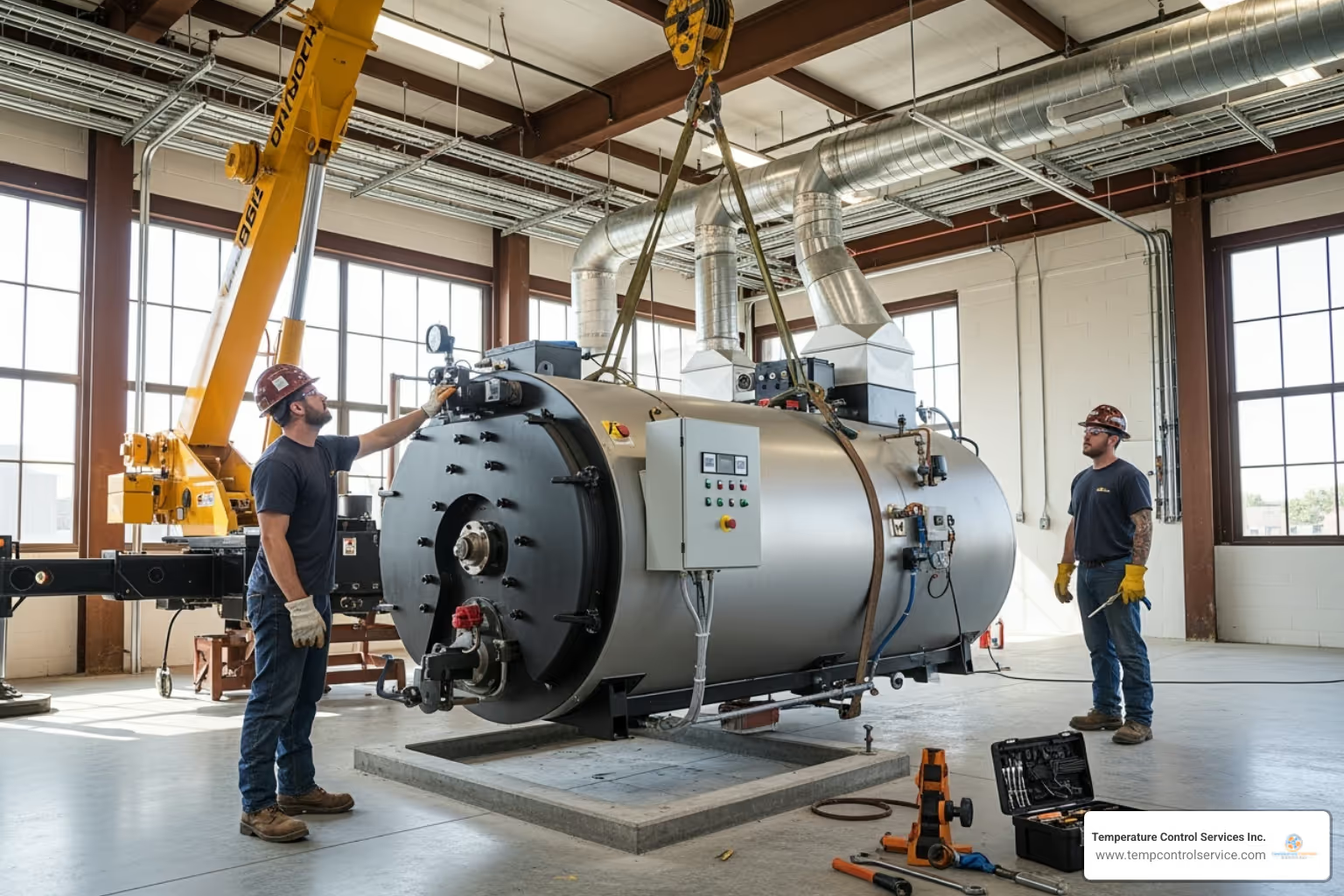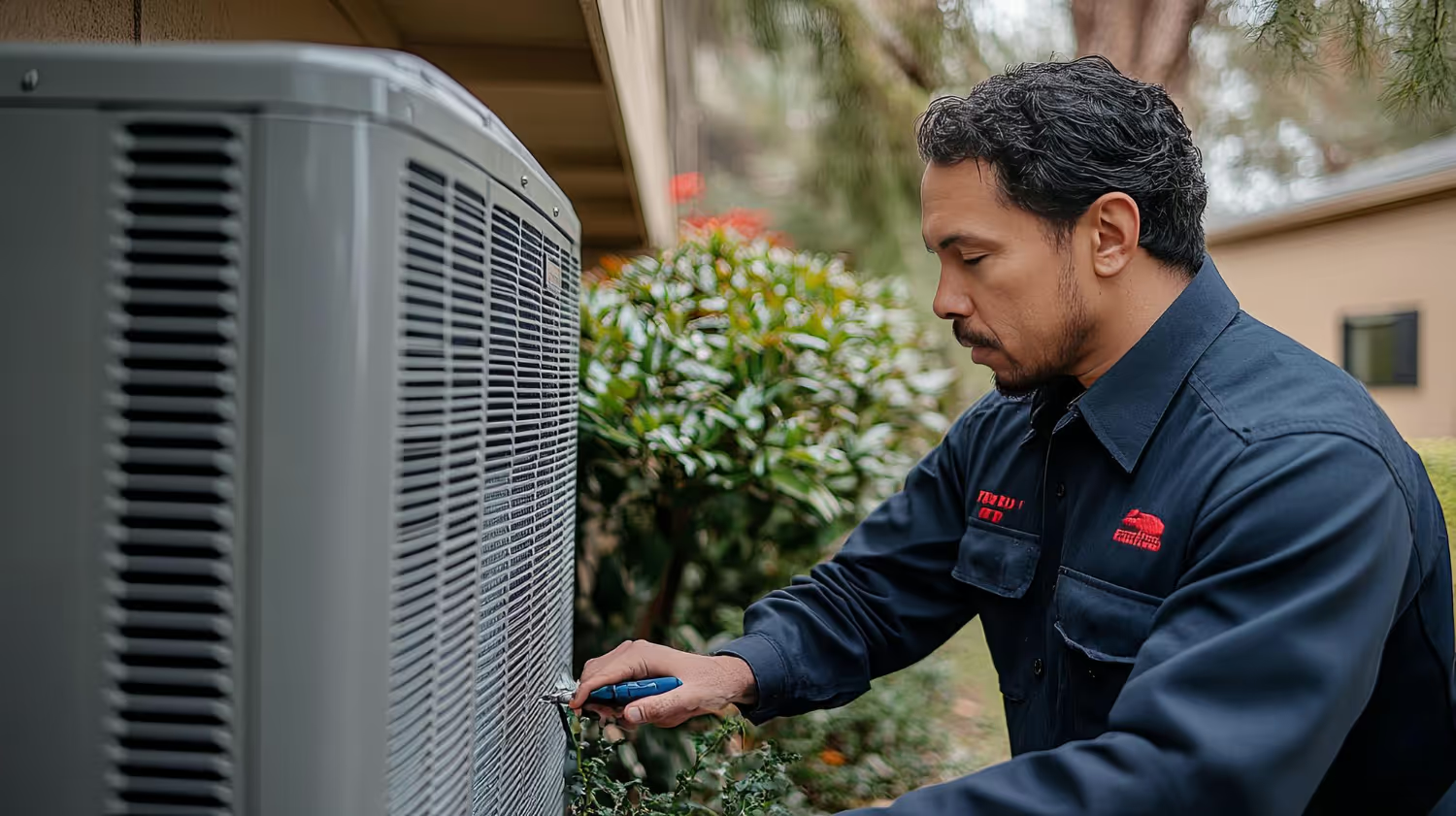
It can be frustrating to hear a high-pitched whistling sound coming from your heating system, especially when you’re trying to relax at home. In Raleigh, where temperatures can vary during the fall months, it’s important to have a heating system that works quietly and reliably. A whistling noise often points to something in the system that isn’t working the way it should. While it might not seem like an urgent problem at first, ignoring it can lead to bigger issues later on.
These sounds can happen for a few different reasons, and each one tells you something about how your system is performing. Whether it’s related to airflow, worn parts, or gaps in the ductwork, whistling noises are not normal. Understanding what might be causing them is the first step to protecting your comfort at home and avoiding a full breakdown when colder weather hits. Let’s look at the most common reasons heating systems start to whistle, and how homeowners in Raleigh can stay ahead of trouble.
Common Causes Of Whistling Noises In Heating Systems
There are a few main reasons a heating system in your Raleigh home might start making a whistling noise. Some are related to airflow, while others may signal internal damage. In many cases, the issue can be caught early with some simple attention.
Here’s what homeowners should keep in mind:
1. Airflow Issues
This is one of the more common reasons for whistling. When air filters are dirty or vents are blocked, the air gets forced through tighter spaces than intended. That fast-moving air squeezes through the filter and makes a whistling or hissing sound.
Some key airflow problems include:
- Clogged air filters that haven't been changed recently
- Return air vents blocked by furniture or objects
- Closed or partially closed supply registers
- Vents covered by curtains or rugs
Clear airflow is central to the way your system runs. When the air can’t move freely, the pressure builds up and leads to those unwanted sounds. Replacing filters regularly and making sure vents are open and unblocked can make a big difference.
2. Ductwork Problems
Your ductwork is what carries warm air from your system into your living spaces. If there are small gaps, cracks, or loose connections, air can get pushed through improperly sealed spaces, creating a high-pitched whistling noise.
Whistling ductwork might be caused by:
- Loose duct joints
- Aging or damaged insulation
- Ducts that are too narrow or not properly sized
- Shrinkage and expansion causing sections to pull apart
A homeowner in Raleigh recently noticed a faint whistling in their living room every time the heat kicked on. After checking airflow and filters with no change, they had our technicians take a closer look. The issue turned out to be a split in the duct lining just behind a wall, something not visible without inspection tools. Sealing that gap fixed the noise and improved airflow into that part of the home.
3. Blower Issues
Inside your heating system, there’s a blower that helps push warm air through the ducts. If that blower is damaged, off-center, or worn out, it can cause air to get pushed unevenly, often producing a whistling sound.
Common blower-related causes include:
- Worn blower bearings
- Motor alignment problems
- Loose or unbalanced blades
- Slower-than-normal motor speed
If the whistling noise seems to start from deep within the unit and happens almost like clockwork when the heat kicks on, the blower might be the issue. Over time, wear and tear in this area can get worse, making the noise more noticeable and the system less efficient.
Addressing these noise issues promptly can prevent further complications and extend the life of your system. The next step is knowing when something needs more than just a quick check and when it’s time to call in trained professionals.
When To Call A Professional For Heating Noises
Homeowners in Raleigh sometimes hesitate to get help right away when their heating system starts acting up. But if a whistling noise keeps coming back or gets louder over time, it shouldn’t be ignored. Persistent sounds often mean something mechanical isn't working properly, and delays can lead to heat loss, higher energy bills, or deeper system damage. If the noise happens regularly when the unit turns on or stays constant during operation, it’s a good idea to have it checked by our professionals.
There are also safety risks that come with strange sounds in a heating system. While a whistle might seem harmless, it could point to a problem with the combustion process or even a hidden gas issue. Any sign of burning smells, irregular heating performance, or loud whistles paired with rattles, booms, or vibrations should be addressed immediately. Our technicians are trained to spot these hazards, identify the real cause, and fix it before the situation gets worse.
For homeowners who have already checked filters and made sure nothing’s blocking vents but the noise continues, it’s likely beyond a home-level fix. Complex problems like fan motor misalignment, internal pressure shifts, or leaky duct components often require testing tools and specific training. Our technicians rely on these tools to locate the root issue, not just guess based on what’s heard. If you’re unsure what’s causing the sound or the system has multiple symptoms, it’s time for professional help.
Preventive Maintenance Tips For a Quieter System
Preventing those whistles starts with staying on top of simple maintenance tasks that keep your heating system running smoothly year-round. A few basic steps can lower the chance of hearing those irritating sounds and help your system last longer.
To keep your system quiet and stress-free, follow these three tips:
- Replace filters regularly
Dirty filters can block airflow and cause pressure buildup, which leads to whistling. Aim to replace them every one to three months depending on usage, the type of filter, and whether you have pets in the house.
- Schedule routine system inspections
Having our professionals check your system annually can catch problems before they develop into major noise or performance issues. Early detection of loose parts, blower wear, or duct gaps keeps your system safer and more efficient.
- Keep vents and ductwork clean
Dust buildup, debris, or even small toys can end up inside ducts or vents, causing airflow restrictions. Inspect both intake and output vents regularly and make sure furniture isn’t blocking them. If ducts haven’t been inspected in a few years, it’s worth scheduling a cleanout.
These steps don’t take much time but can prevent serious issues down the road. Regular filter changes and inspections are simple ways to protect your heating system against unexpected failures and unwanted noise.
Ensuring a Quiet and Efficient Heating System in Raleigh
A whistling heating system can quickly turn comfort into frustration, especially if that noise becomes an everyday issue in your Raleigh home. High-pitched sounds often signal a real mechanical problem, something that’s either restricting airflow, misaligning parts, or letting air escape where it shouldn’t. While it may start as a minor distraction, it can get worse fast without the right attention.
Getting to the bottom of the noise early can make a big difference. Whether it’s a loose duct, a clogged filter, or blower issues, addressing the sound promptly protects your system from wear and breakdowns. Staying proactive with regular filter changes, duct checks, and system inspections is a smart way to not just stop noises, but also help your system run more efficiently over time.
By keeping up with maintenance and calling our professionals when something doesn’t sound right, you get peace of mind knowing your heating system is running as it should, quiet, warm, and reliable during cooler weather in Raleigh.
Maintain your comfort and avoid future problems by addressing your heating system's unusual noises early. Temperature Control Services Inc understands the frustration of unexpected sounds in your home and offers expert service that targets even the most persistent issues. If you need a reliable heating contractor in Raleigh to ensure your system runs quietly and effectively, our professionals are ready to help. For a quick estimate or to book a service visit, please contact us today.







.avif)





.svg)